People
Legendary Street and Fashion Photographer Bill Cunningham Is Dead at 87
He worked right up until the end.
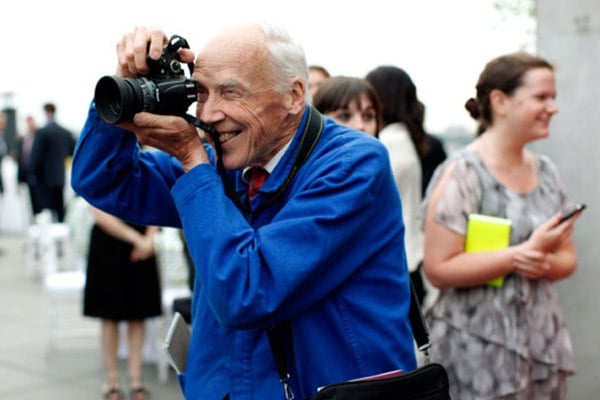
He worked right up until the end.

Sarah Cascone

Bill Cunningham, street and fashion photographer and an official New York living landmark, died June 25 in New York after being hospitalized due to a stroke, reports the New York Times. He was 87.
A fixture on the New York city society scene for decades, Cunningham was an easy-to-spot figure, travelling by bike in his standard uniform, a blue French workers’ jacket with khakis and sneakers, 35-millimeter constantly in tow. According to the Times, he sometimes photographed up to 20 gala events a week.
“Most of my pictures are never published. I just document things I think are important,” wrote Cunningham in the Times in 2002. “For instance, I’ve documented the gay pride parade from its first days.”
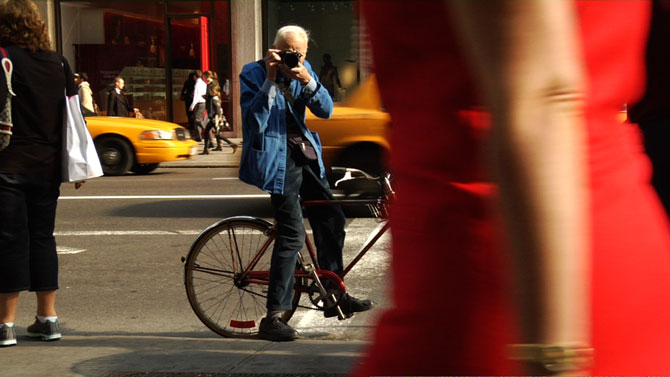
Bill Cunningham photographing the streets of New York. Courtesy CreditFirst Thought Films/Zeitgeist Films.
“I go to different places all the time,” said the photographer of his process. “And I try to be as discreet as I can. My whole thing is to be invisible. You get more natural pictures that way, too.”
Cunningham, who shot for the Times for nearly 40 years, worked right up to the end, photographing the Frick Collection‘s annual garden party on May 23, and publishing a video on black and white clothing combinations, titled “Duality,” and an accompanying selection of photos on June 3 and 5.
For Cunningham, his work was more than just a job—it was what kept him going. “When I get depressed at the office, I go out, and as soon as I’m on the street and see people, I feel better,” he wrote. “I let the street speak to me.”
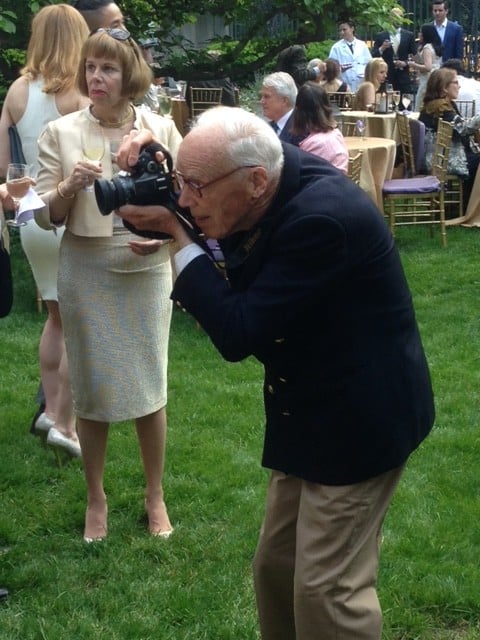
Bill Cunningham at the Frick Garden Party. Courtesy of Sarah Cascone.
Throughout his career, Cunningham treated Manhattan as one big runway, observing fashion trends in the wild. “If you just cover the designers in the shows, that’s only one facet. You also need the street and the evening hours,” he explained. “If you cover the three things, you have the full picture of what people are wearing.”
In recent years, thanks to such honors as the French Legion of Honor (2008) and the Carnegie Hall Medal of Excellence (2012), and the documentary Bill Cunningham New York, which premiered at New York’s Museum of Modern Art in 2010, the photographer became something of a celebrity himself.
As he snapped away at New York Fashion Week, Cunningham became a popular subject of Instagram posts among guests who were just as excited to see the dapper photographer as any of the boldfaced names seated in the front row or high-end garments coming down the runway.
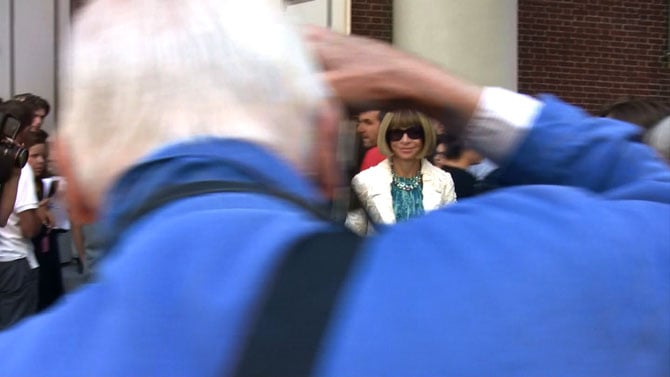
Bill Cunningham shooting Anna Wintour. Courtesy CreditFirst Thought Films/Zeitgeist Films.
Reportedly, Cunningham resented the publicity, and disliked being approached by strangers, preferring to remain anonymous behind the lens, to better allow him to observe others.
I experienced his reluctance to interact with fans first hand, in Penn Station just last month. “Mr. Cunningham,” I said, tapping him on the shoulder. He instantly tensed up, uncomfortable with the attention, until I pointed out he had dropped his glasses case while getting up from his seat in the waiting room. “Bless you child,” Cunningham said, his face breaking into a broad smile as he set off to catch his train.
In 2014, the photographer donated a selection of his photographs to the New-York Historical Society, a series from 1968–72 that paired New York architecture with his friend Editta Sherman, dressed in period clothing matching the eras in which the buildings were erected. The exhibition, “Bill Cunningham: Facades,” was a rare fashion exhibition for the museum.
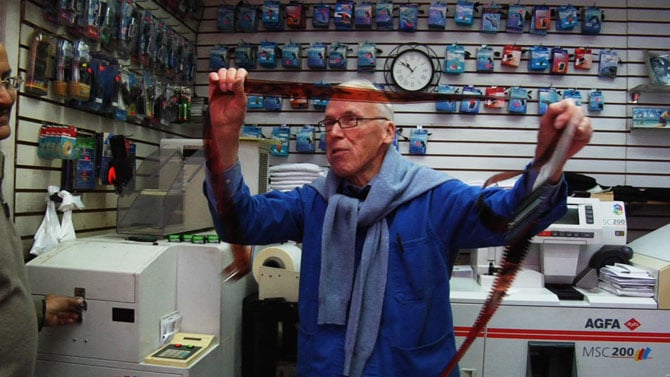
Bill Cunningham looking at negatives at his local film processing store in midtown. Courtesy CreditFirst Thought Films/Zeitgeist Films.
For Cunningham, interacting with the city was more than just a job.
“When I get depressed at the office, I go out,” he wrote, ” and as soon as I’m on the street and see people, I feel better. I let the street speak to me.”